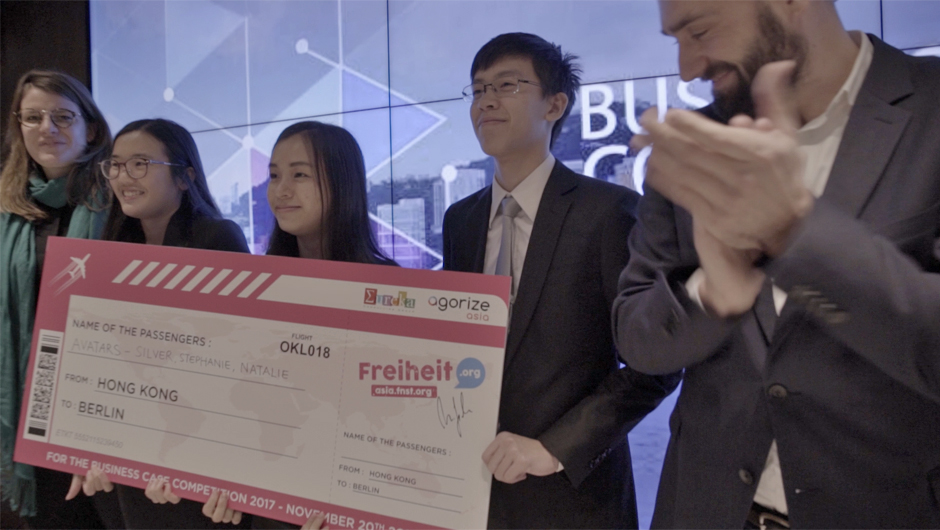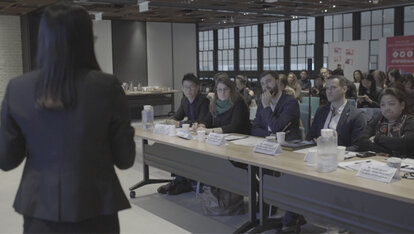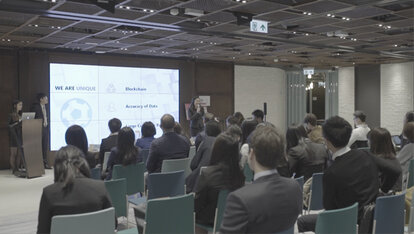Blockchain to secure right to privacy

Blockchain technology is more commonly used in the financial industry particularly for online payments. It works as a secure general ledger, recording all transactions that take place digitally. The rise of bitcoin is attributable to its activities being transparent, which is enabled by blockchain.
At the first Business Case Competition organized by FNF’s Global Innovation Hub, the use of blockchain was proposed to ensure protection of digital property rights. In this internet era where erosion of privacy is increasingly becoming widespread, an innovative technological and business solution, which at the same time promotes an oft-forgotten human right, deserves recognition.
FNF opened the Business Case Competition to Hong Kong students and graduates to raise awareness on the need to integrate human rights in the corporate strategy. As trade becomes more globalized, innovative business models that embrace respect for human rights, and that similarly goes beyond the usual corporate social responsibility (CSR) programs, are valuable.
“Business and human rights (BHR) is not a popular topic, but is slowly gaining ground because the general public is also becoming conscious of issues like labor exploitation, and consider these before they make any purchase,” said Dr. Maximillian Spohr, Human Rights Officer for FNF. “There are also other aspects in BHR that we would like to call people’s attention to such as transparency in supply and production chains, and the obligation of both the state and corporations to meet their commitment to promote human rights as specified in the UN Guiding Principles on Business and Human Rights,” he added.

Responding to the BHR challenge, students from Hong Kong University of Science and Technology and City University of Hong Kong teamed up, and developed an idea hack that would guarantee the confidentiality of personal data. “Due to technological developments, data that can track down and profile an individual are made available to unauthorized parties,” said Natalie Chan who is currently studying law.
The group, which named themselves Avatars, cited Article 17 of the International Covenant on Civil and Political Rights (ICCPR) stating that: No one shall be subjected to arbitrary or unlawful interference with his privacy, family, home or correspondence, nor to unlawful attacks on his honor and reputation.
To further strengthen their case, they also referred to the United Nations Resolution 68/167, adopted at its General Assembly in December 2013, “which affirmed that the rights held by people offline must also be protected online, and it called upon all States to respect and protect the right to privacy in digital communication.”
Avatars pitched an online platform called Bucky that would allow customers to monitor their personal data. Bucky addresses the current issue of how and to what extent private information are stored and distributed to third parties. Using the system powered by blockchain, the owner has to give permission before anyone else can view his/ her profile. All digital footprints are recorded, preventing unauthorized access to data.
“We have the right to own our virtual self,” stressed Avatars member Stephanie Kwok.

Apart from protecting right to privacy, Bucky would also allow individuals to monetize their private information. In turn, merchants would have a more targeted market to which they can advertise their products. Banks, in particular, would also be assured of data accuracy in their client’s online behavior.
The competition ran for two months. 42 teams comprised of over 100 students from 20 universities submitted a proposal on how to promote human rights in business. 10 groups entered the mentoring stage, which then pitched their ideas to the jury on 20 November 2017 in Hong Kong.
Spohr, and Isabel Ebert and Lowell Chow, representatives from the Business and Human Rights Resource Center from Berlin and Hong Kong respectively sat as judges. UStrategy, recommending the use of blockchain and augmented reality to raise consumer awareness landed 2nd place, and EONIQ, a collaborative online assessment platform placed 3rd in the competition.
“The proposal is a disruptive idea that is able to merge business, innovation, and human rights. Corporations as well as the society can profit if we can secure our digital property rights,” commented Head of FNF Innovation Hub Armin Reinartz.
The FNF Innovation Hub supports programs to discover new ideas on how innovation can be integrated to governance, including business.
The Business Case Challenge in one minute!
Digital rights are human rights, which is what this team of Hong Kong students try to promote.